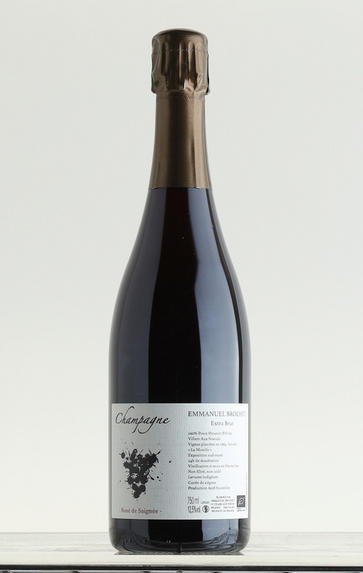
Champagne Emmanuel Brochet, Rosé de Saignee, Extra Brut
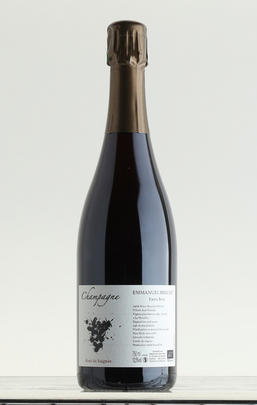
Critics reviews
The 2019 Extra-Brut Rosé de Saignée is produced from organically farmed old-vine Pinot Meunier grown in Villers Aux Noeuds that Brochet purchases from another grower. Bursting with aromas of raspberries, plums, sweet berries, peonies and orange, it's medium to full-bodied, fleshy and layered, with a textural, enveloping profile and a broad, expansive finish. Avoiding any of the ponderousness that can sometimes mar this style of rosé, especially when the grapes get very ripe, shows all the precision typical of this producer's style.
Drink 2021 - 2026
William Kelley, Wine Advocate (August 2022)
About this WINE
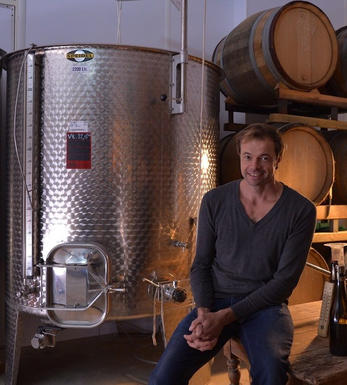
Emmanuel Brochet
Emmanuel Brochet founded his estate, a relatively small, family-owned operation in the Champagne region of France. He owns and manages vineyards in some of the prime areas of the Champagne region, including the Vallée de la Marne, known for its Pinot Noir and Pinot Meunier grapes.
Like many Champagne producers, Emmanuel Brochet focuses on the classic Champagne grape varieties, including Pinot Noir, Pinot Meunier, and Chardonnay. The winery emphasises minimal intervention in the vineyard and the cellar, allowing the grapes and terroir to shine through in the final wines.
The estate produces a limited number of cuvées, each showcasing different aspects of the Champagne terroir and grape varieties. These include non-vintage (NV), vintage Champagnes, and single-vineyard cuvées.
Many Champagne producers, including boutique ones like Emmanuel Brochet, have increasingly adopted sustainable and environmentally friendly practices in recent years. This includes organic or biodynamic farming methods and efforts to reduce their environmental impact.
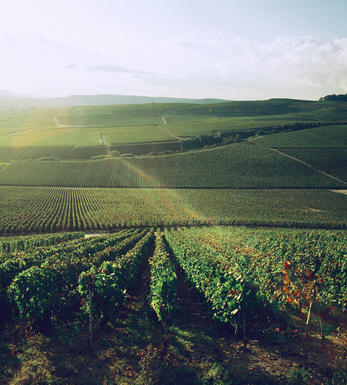
Rosé Champagne
Rosé wines are produced by leaving the juice of red grapes to macerate on their skins for a brief time to extract pigments (natural colourings). However, Rosé Champagne is notable in that it is produced by the addition of a small percentage of red wine – usually Pinot Noir from the village of Bouzy – during blending.
Recommended Producers : Billecart Salmon (Elizabeth Salmon Rose), Ruinart
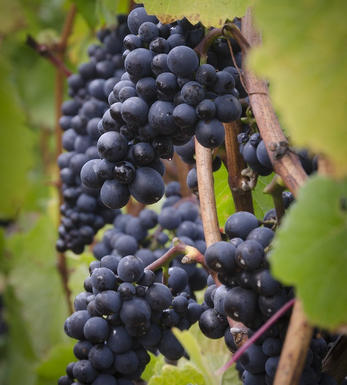
Pinot Meunier
Pinot Meunier is a black grape variety used primarily in the Champagne region of France. It is one of the three primary grape varieties used in Champagne production, alongside Chardonnay and Pinot Noir. Its exact origins are debatable, but it is believed to have originated in Champagne as a mutation of the Pinot Noir variety.
The name “Meunier” is derived from the French word for “miller,” as the underside of the grape leaves has a powdery, white appearance reminiscent of flour on a miller’s hands. The grapes are small and blue-black in colour, similar in appearance to Pinot Noir grapes.
Pinot Meunier is known for its adaptability and ability to grow well in cooler climates. It buds and ripens earlier than Pinot Noir, making it less susceptible to late spring frost damage. This characteristic is particularly valuable in Champagne, where the climate can be challenging.
The wines tend to be fruity, with flavours of red berries, cherries, and sometimes a hint of spice. They are often softer and more approachable than the more structured Pinot Noir in their youth.
While Pinot Meunier is most closely associated with Champagne, it is also grown in other wine regions, including parts of Germany, United States (mainly California), and New Zealand. In these regions, it is used to produce still and sparkling wines.


Buying options
Add to wishlist
Description
The 2019 Extra-Brut Rosé de Saignée is produced from organically farmed old-vine Pinot Meunier grown in Villers Aux Noeuds that Brochet purchases from another grower. Bursting with aromas of raspberries, plums, sweet berries, peonies and orange, it's medium to full-bodied, fleshy and layered, with a textural, enveloping profile and a broad, expansive finish. Avoiding any of the ponderousness that can sometimes mar this style of rosé, especially when the grapes get very ripe, shows all the precision typical of this producer's style.
Drink 2021 - 2026
William Kelley, Wine Advocate (August 2022)
wine at a glance
Delivery and quality guarantee